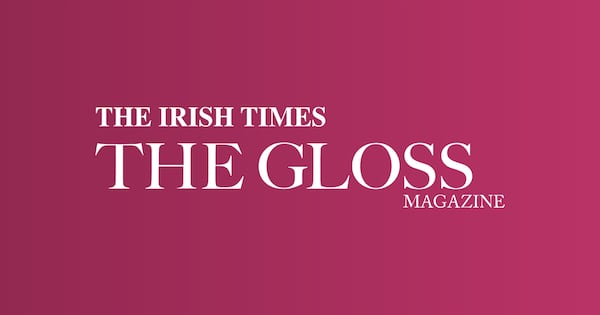Irish designer Paul Costelloe, who opened London Fashion Week on Friday morning, dedicated his 2023 autumn-winter collection to Dublin and Joyce’s Ulysses with references in fabrics, print and music to his native city. In his usual venue, the Palm Court at the Waldorf Hotel, he opened the show with a dramatic trio of tailored dark tweed suits on red haired models against the background of Sinéad O’Connor’s sean-nós rendition of Molly Malone.
“From a creative point of view Ireland is having a moment with so much happening in film and elsewhere, so I am taking advantage of it”, the veteran designer said before the show. “This collection is about tailoring, tradition and culture and that’s part of my DNA”.
This show has been a challenging one ... because it is Irish and we don’t want to let the side down
— Paul Costelloe's wife Ann said afterwards
The most obvious references to Dublin were the billowing silver and black linen red-carpet style gowns emblazoned with prints designed by his son William, the textile designer, featuring images of the city’s familiar landmarks and motifs – Georgian doors, the Poolbeg chimneys, Molly Bloom references from Ulysses.
William’s hand also showed in some very beautiful printed silk dresses, some baby doll, some trapeze, some strapless fit and flare in bold and blowsy artistic florals. Others were long, slinky affairs in red velvet or quilted with padded boat necks.
RM Block


So much for the dresses. The real strength in this collection, however, was in Costelloe’s powerful tailoring of Irish tweed giving it a look that was sleek, contemporary and attainable – there were tautly tailored coats with flared skirts, pagoda sleeved jackets worn over short plaid skirts and skirts draped with languid knits. One standout ensemble featured trousers with a leather harness buckled neatly over a printed linen shirt and tie while another dress was cut loose under the arms beneath a fitted bodice, an unusual and innovative way of handling tweed.
0 of 17
Fabrics were from north and south, from Magee in Donegal, Emblem Weavers in Co Wexford with linen from William Clark in Maghera, Co Derry alongside Italian silks and plaids. Well styled with the occasional use of top hats, elbow length leather gloves and high boots for added dash, notable accessories included glass jewellery from artist architect Angela Brady, Bláithín Ennis and tribal inspired pieces from Peter Adler’s Pebble to complement the ensembles.
“This show has been a challenging one”, his wife Ann Costelloe said afterwards. “Because it is Irish and we don’t want to let the side down”. Many would argue that this was one of Costelloe’s best collections in years.


As a study in contrasts, the Irish designer, Sinéad O’Dwyer, a NEWGEN recipient championing diversity, presented her second London Fashion Week collection called Dúil, an Irish word usually translated as desire, but with multiple meanings and nuances.
It was diametrically opposite to that of Costelloe in approach, style and presentation with models that spanned a wide spectrum of sizes and ethnicities, and clothes that ranged from cotton trench coats to satin pajama sets and floor sweeping silk evening gowns.
Her knits embraced different body shapes with ease and fluidity, and the latticed legwear and knits are becoming her signature along with her cleverly cut poplin shirting and use of natural dyed linen and veg tanned UK deer and goatskin.
Dedicated to her late grandmother, Rita, the collection featured a number of the items that referenced her Aran knitting skills reinterpreted and intricately woven from satin bands and strips of elasticated cotton knit. Musician Pelin, who uses a wheelchair, was one of her many fans at the show.
“Sinéad understands the variety that exists in the bigger sizes and caters for all types. She uses such a variety of a fabrics so the body does not have to fight the garment. She is unique”.



































